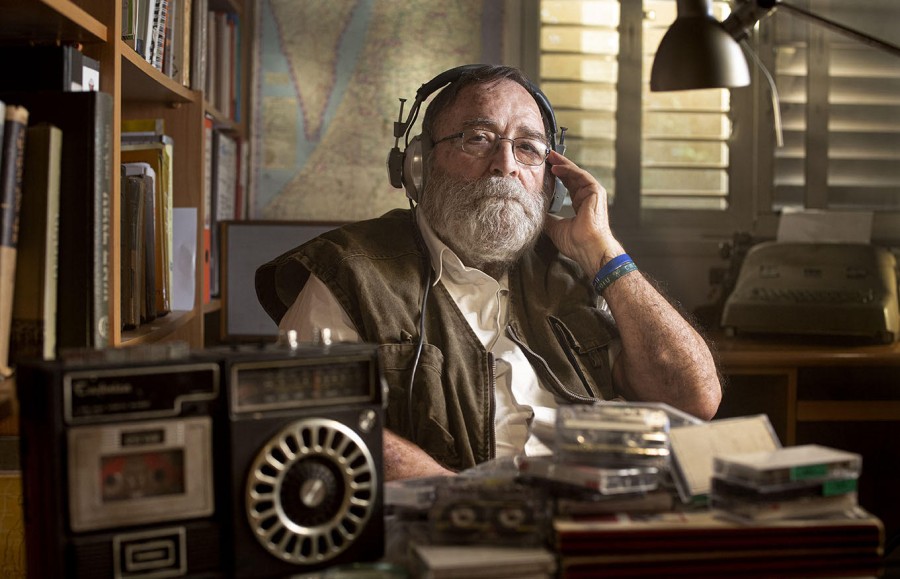Review: ‘Tantura’ ambitiously examines the Israeli massacre of a Palestinian village
Alon Schwarz confronts Israeli denial of the 1948 massacre of Palestinian villages in his new chilling and revealing documentary. “Tantura” is currently playing at the IFC Center.
Filmmaker Alon Schwartz’s latest documentary “Tantura” is now playing at IFC Center. (Courtesy of Reel Peak Films)
December 12, 2022
Filmmaker Alon Schwarz’s newest documentary, “Tantura,” examines the Israeli massacre of the Palestinian village of Tantura during the 1948 Nakba, or “catastrophe” in Arabic. The massacre resulted in approximately 750,000 Palestinians being expelled from their villages after the establishment of the state of Israel. Through a series of archival footage and interviews with former Israeli soldiers, Schwarz manages to reconstruct the past, combating historical and contemporary Israeli denial.
The documentary begins with Teddy Katz, a former Israeli graduate student at the University of Haifa, who in 1998 submitted a thesis examining the massacre of Tantura using 135 recorded interviews — half Jewish and half Arab — and in-depth historical research. The thesis, while academically acclaimed, was received incredibly harshly by the Israeli media and the general public. They stated that his findings were inauthentic despite his various accounts of oral evidence stating that all Palestinians in the seaside village were either killed, injured or dispossessed from their homes and were no different from the hundreds of other villages depopulated in 1948.
Katz’s research also details the digging of a burial site underneath Tantura’s beach and its parking lot, which Israeli soldiers continue to deny. Soon after his thesis was published, Katz was forced to issue an apology to the Israeli court and his research degree was stripped away.
Schwarz was fascinated by Katz’s story and sought to hear his recorded interviews in full detail, as well as interview the same former soldiers who were interviewed by Katz nearly 20 years ago.
These interviews differed drastically from one another, with some former soldiers admitting to these findings without question and some outright denying that there was any massacre whatsoever.
Schwarz additionally conducted interviews with Israeli historians and professors regarding Katz’s findings, all of whom also came to radically different conclusions. Whereas some historians acknowledged the massacre’s occurrence, some described Katz’s claims as fabricated. Ultimately, what Schwarz found was a clear contradiction between fact and fiction among these soldiers.
Schwarz also interviewed three Palestinians — two middle-aged men and one elderly woman — each of whom gave their individual experiences during and following the 1948 massacre. These experiences were authentically captured by Schwarz, detailing the explicit and implicit effects of the massacre on Palestinian society. These interviews, while an incredibly minor, and often too minor, aspect of “Tantura,” not only disprove the repressed Israeli narrative, but also offer genuine and striking documentation of the psychological state of Palestinians who survived the many acts of violence that occurred in 1948.
To call “Tantura” the “first film about the Nakba” does a massive disservice to well-made Palestinian films such as Elia Suleiman’s “The Time that Remains” (2009) and, more recently, Darin Sallam’s “Farha” (2021). However, it is an effective, well-done and often ambitious film that is hellbent on challenging Israeli denial and advancing modern discourse regarding what happened in 1948, not just with regard to Nakba, but to Palestine as a whole.
Contact Yezen Saadah at [email protected].

























































































































































